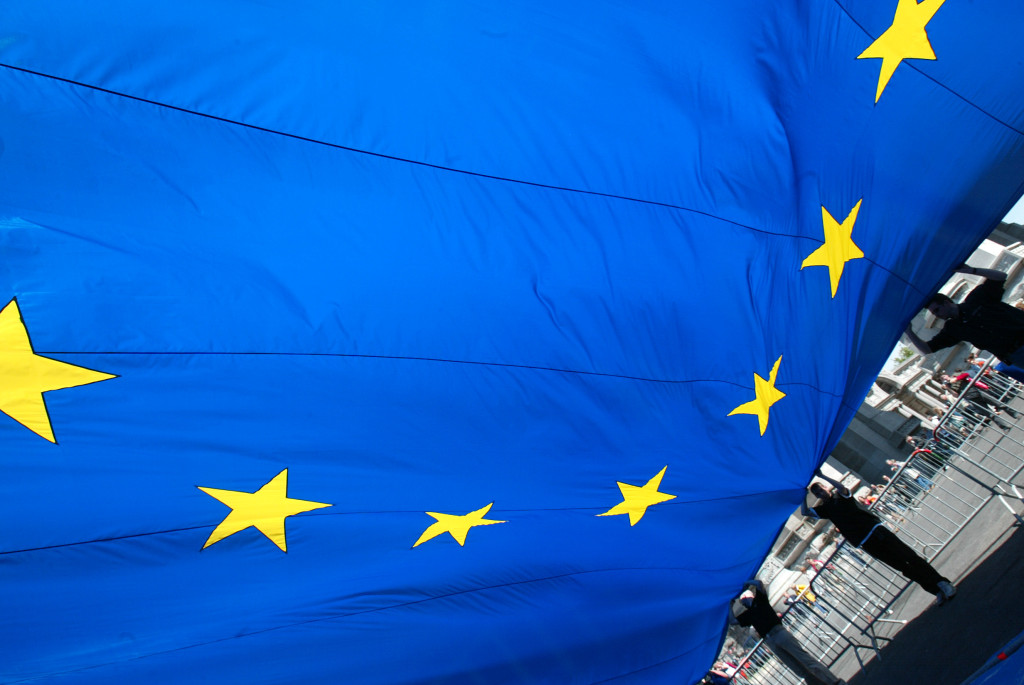The outcome of the recent referendum in the Netherlands over the EU association agreement with Ukraine is another blow to the European Union project. 61% of the voters who decided to vote in the first consultative referendum since the enactment of the Advisory Referendum Act in July 2015 rejected the Approval Act of the agreement. The turnout was just above 30% level, necessary for the vote to be valid.
Such outcome is a problem for most of the stakeholders engaged. Firstly, it can be seen as a defeat of Dutch coalition government who supported “yes” vote. The fact that the government’s campaign was rather faint can be explained by the hope that the turnout will not reach the required level. This miscalculation can prove to be politically costly as the government is facing general election next year. At the same time, the results are a success of populist and anti-EU Geert Wilders’s Party for Freedom (PVV) which currently leads the polls.
Moreover, the Dutch “no” constitutes another problem for the European Union already weakened by the migration crisis, economic problems and potential Brexit. Even though the pre-referendum “no” campaign seemed to be focused on migration and other potential costs of closer ties of Ukraine with the EU, Geert Wilders was clear about his agenda. “PVV is opposed to it [Approval Act], because we think it is yet another example of how ruling elites in Brussels and in The Hague decide things above our heads and sell out our interests without ever consulting us”.
The outcome of the referendum has been hailed by most of prominent eurosceptics including Marie le Pen and Nigel Farage who just before the vote claimed that the Dutch “no” would give him “hell of the assistance for June 23rd”. It is hard to say whether this will be the case as the turnout was exceptionally low, demonstrating that the anti-EU sentiment is not as significant as depicted by eurosceptics. Nevertheless, those who voted delayed ratification of the Association Agreement and demonstrated their reluctance to the mainstream political parties and the EU. In such a situation the ratification will most probably take place with opt-out clause, which means that the Netherlands will be excluded from some of the Association Agreement’s provisions. This, however, will delay the process and fuel anti-EU resentment based on the argument of not respecting people’s will.
Such situation will also strengthen Vladimir Putin’s anti-EU narrative. Russian information warfare will play on undemocratic character of the EU’s decision as this can be used both internally and externally. It will aim to convince Europeans that this undemocratic decision and more developed ties with the Ukraine constitute significant financial cost. Such argument has a potential to work especially well among countries who want to keep good relations with Russia and who already underline negative economic consequences of the EU’s sanctions. This, in consequence, could cause further divisions within the EU, already serious because of the migration crisis. Finally, Russian propaganda will try to discourage Ukrainians from reforming and at the same time foster anti-reformist forces within the country in a difficult moment. Dynamic and uncertain situation in the East, together with political instability portrayed by recent Arseniy Yatsenyuk’s resignation and Petro Poroshenko’s offshore links revealed by Panama Leaks, can form a dangerous mixture. Deeply impoverished country, where most of the people bear exhausting burden of adjusting political and economic system to the EU standards and IMF requirements, can opt for less demanding scenarios, whatever they may be.
New Ukrainian PM (most probably Volodymyr Groysman) will find himself in tight political spot, fighting all those problems simultaneously. He will have to make more effort to convince both Ukrainians and Europeans that his government is genuinely committed to tackling pivotal corruption problem. Restoring trust will be an extremely difficult task taking Poroshenko’s offshore connections into account. Moreover, he will have to manage economic crisis and secure popular support for the reformist way. Failing to do so can find its reflection in more assertive and reluctant attitude towards Ukraine of some of the EU countries.
Needless to say, Ukrainian failure would not only be a problem of Ukrainians. Such a scenario has a strong potential of further undermining European project and putting the idea of European integration into question, especially in Western Balkans and Moldova. It can also inflict serious harm to EU credibility and values. After all, Euromaidan or “Revolution of Dignity” as some Ukrainians call it, took place under EU flags representing certain set of values and long-term goals.
European Union cannot afford new Iron Curtain on its eastern borders. It has to remain open, a role model of solidarity for societies who share its values. This will not be possible without internal reforms of the Union. It might sound unrealistic with Eurosceptic populism on the rise but the only way to tackle lack of Union’s efficiency, both internally and externally, is to introduce more integration and coordination. In today’s globalised world, underlining differences and particular interests of European countries and aiming for dissolution or weakening the Union is a key geopolitical threat to stability on the continent and, not to mention, a strategic goal of Vladimir Putin. Belief that European countries will cooperate better when less integrated could be funny, if it was not dangerous.



